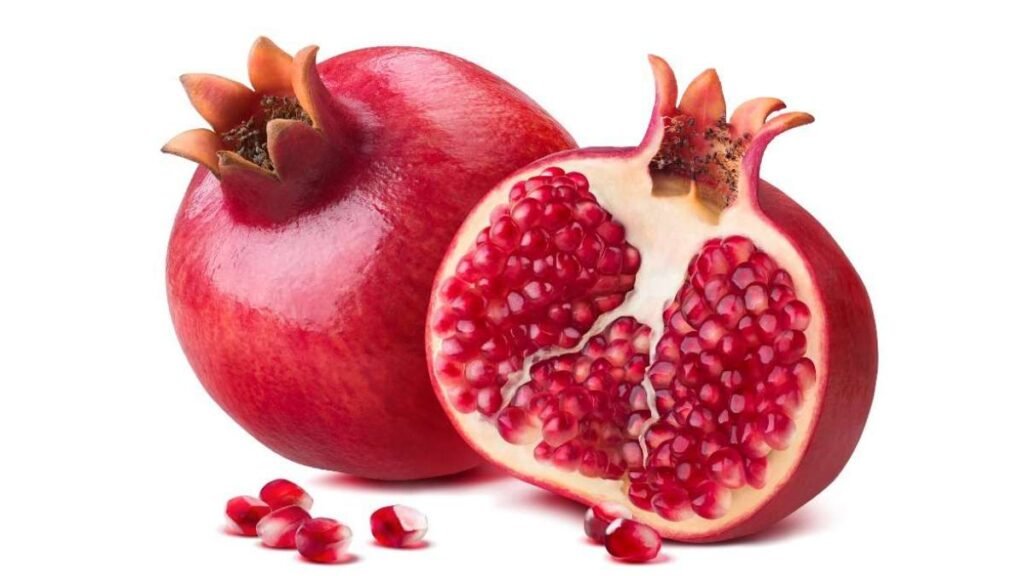Can a Dog Eat Pomegranate? Essential Insights for Pet Owners
As a loving pet owner, One intriguing fruit that often piques curiosity is the pomegranate. Known for its vibrant color and health benefits for humans, the question remains: Can a dog eat pomegranate? In this article, we will explore the nutritional aspects of pomegranates, the potential risks involved, and suitable alternatives to consider for your dog’s diet.

What Is Pomegranate?
Pomegranate (Punica granatum) is a fruit native to the Mediterranean region and parts of Asia. This nutrient-rich fruit is celebrated for its delicious, tangy flavor and jewel-like seeds, known as arils. Pomegranates are not only enjoyed for their taste but also for their numerous health benefits, including being high in antioxidants and vitamins.
Nutritional Benefits of Pomegranate
Before determining if a dog can eat pomegranate, it’s essential to understand its nutritional content:
- Vitamins: Pomegranates are a good source of vitamin C, which helps boost the immune system, and vitamin K, important for blood clotting and bone health.
- Antioxidants: This fruit is rich in powerful antioxidants, particularly punicalagins and anthocyanins, which combat oxidative stress and inflammation in the body.
- Fiber: The seeds of the pomegranate are high in fiber, which aids in digestion.
Can Dogs Eat Pomegranate?
The short answer is not recommended. While pomegranates are not toxic to dogs, they do come with several concerns that pet owners should be aware of:
1. Choking Hazard
The seeds (arils) of pomegranate can pose a choking risk, especially for small dogs. If you do choose to offer pomegranate, make sure to supervise your dog and ensure they can chew the seeds properly.
2. Digestive Issues
The fibrous nature of pomegranate seeds can cause digestive upset in dogs. If a dog consumes too many seeds, they may experience:
- Vomiting
- Diarrhea
- Abdominal pain
These symptoms can lead to discomfort and should be monitored closely.
3. Sugar Content
Pomegranates contain natural sugars, which, while not harmful in small amounts, can lead to potential issues if consumed in excess:
- Weight Gain: Excessive sugar can contribute to obesity, especially in less active dogs.
- Blood Sugar Spikes: Dogs with diabetes should avoid high-sugar foods to prevent fluctuations in blood sugar levels.
4. Allergic Reactions
While rare, some dogs may have allergies or sensitivities to pomegranates. Signs of an allergic reaction may include:
- Itching and skin irritations
- Swelling around the face, ears, or paws
- Gastrointestinal distress
If you observe any of these symptoms after your dog consumes pomegranate, it’s essential to consult your veterinarian.
5. Moderation Is Crucial
If you decide to introduce pomegranate to your dog’s diet, it’s crucial to do so in moderation. Small amounts of pomegranate seeds may be safe for some dogs, but always introduce new foods gradually.
What to Do If Your Dog Eats Pomegranate
If your dog has consumed pomegranate, especially the seeds, here’s what to do:
- Monitor for Symptoms: Keep a close watch for signs of gastrointestinal upset or allergic reactions. Symptoms to look out for include vomiting, diarrhea, or unusual behavior.
- Ensure Hydration: Make sure your dog has access to plenty of fresh water, as this will help flush their system and prevent dehydration.
- Consult Your Veterinarian: If your dog displays any concerning symptoms or has consumed a large amount of pomegranate, reach out to your veterinarian for advice.
Safe Alternatives to Pomegranate
If you’re looking for nutritious and safe treats for your dog, consider these alternatives:
1. Blueberries
These small berries are rich in antioxidants and safe for dogs. Blueberries can help support cognitive function and provide vitamins C and K.
2. Apples
Apples can be a crunchy and nutritious snack. Just be sure to remove the seeds and core before giving slices to your dog, as the seeds contain cyanide.
3. Carrots
Low in calories and high in fiber, carrots can be a great snack that also helps clean your dog’s teeth.
4. Pumpkin
Plain, cooked pumpkin (not the spiced pie filling) is a great source of fiber and can aid in regulating your dog’s digestive system.
5. Watermelon
Seedless watermelon is hydrating and provides vitamins A, C, and B6. Be sure to remove the seeds and rind before offering it to your dog.
Conclusion: Can a Dog Eat Pomegranate?
In conclusion, while dogs can technically consume pomegranate in small amounts, it’s generally not advisable due to potential risks such as choking hazards, digestive issues, and high sugar content. Always prioritize moderation, and observe your dog closely if introducing any new foods.
For safer and healthier alternatives, consider fruits and vegetables that are known to be dog-friendly. By making informed choices about your dog’s diet, you can help ensure their health and happiness. Always consult your veterinarian if you have any questions about your dog’s dietary needs or concerns. With the right knowledge, you can provide a well-rounded diet that supports your dog’s overall well-being.
